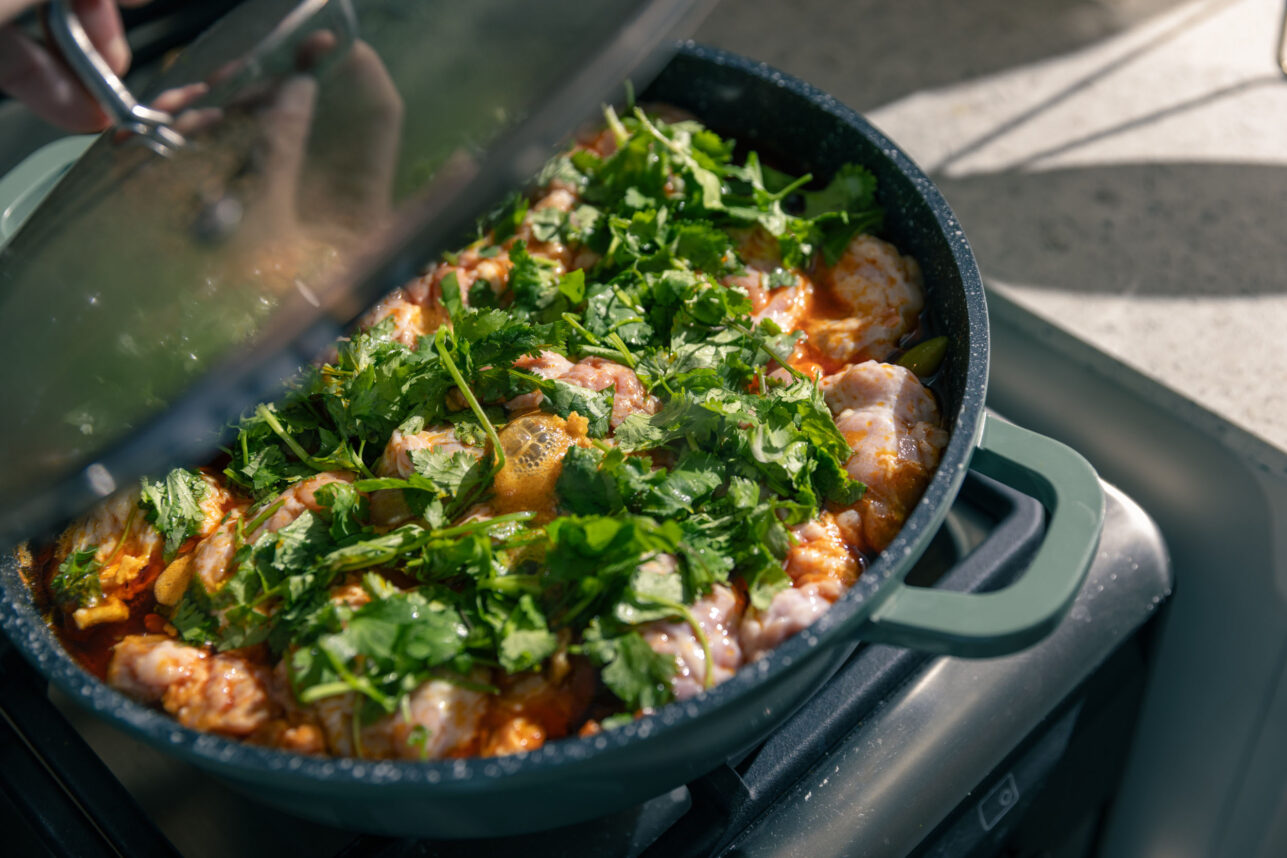Chico Menashe is the CEO of Asif: Culinary Institute of Israel, a nonprofit organization and culinary center in Tel Aviv. Founded in 2021, Asif is dedicated to fostering Israel's diverse and creative food culture.
“This is Israeli food culture, not specifically Jewish culture,” Menashe told the Journal. “We have influences from all over the world.”
When asked about the appeal of Israeli cuisine, Menashe said it's a combination of traditions.
“So many societies came to Israel and created this big pot of culture,” he said. “Everyone came to Israel with their own traditions and gave their own role to this cultural heritage.”
He believes it's no coincidence that so many Israeli restaurants are successful.
“This combination of Israeli creativity, innovative thinking and boldness – Israeli irreverence – doesn't just happen in Israeli high tech or the Israeli military,” Menashe said. “It happens in the kitchen too.”
Israeli cuisine is part of the essence of Israeli culture as a whole.
Having more fun in the kitchen starts with being open to new ideas, recipes, and flavors. Find new recipes on Asif.org, another of his websites, or cookbooks, and buy unfamiliar ingredients to try.
“This is part of the Israeli way,” he said. “You may or may not like it, but please take the plunge and give it a try.”
Asif's recipe is below.
One of Asif's latest endeavors is an open kitchen project. In this project, local Israeli residents open their homes to people displaced by the war and in need of a place to cook. During the first months of the war, Asif prepared 1,500 meals per day for evacuees and other people.. Feeding people is very important. Giving them a place to prepare their favorite meals is invaluable.
“We are an intermediary between the cooks who were forced to leave their homes on October 7 and local residents who want to open their own kitchens,” Menashe said.
This involves a lot of logistics. Some people require a strict kosher kitchen, while others do not. Sharing food, recipes, and traditions is invaluable to everyone.
“We found that we created not only connections between individuals, but also connections between families and then communities,” Menashe said.
In one example, one of the cooks wanted to bake some cakes for the community at a hotel in Tel Aviv. Thousands of people still live in local hotels.
“She started making five or seven cakes,” he says. “She was successful in the end, and she decided to make her 20 cakes in one day. However, the host woman only has two ovens and she only has two.”
Accepting the rough edges of cooking in Israel, she starts knocking on the doors of her host's neighbors and asks, “Can I use your kitchen for an hour or two?” Most people said yes. They made over 20 cakes that night.
“There are a lot of stories like this,” Menashe said. “There’s so much connection between the two women in the kitchen. [who] We met for the first time that night. ”
He added: “There's a spark. There's just magic in the kitchen.”
At Asif's test kitchen, we try out some of these dishes, and our professionals write recipes and take photos. I also collect inside stories.
“We list on our website things that we recognize as offering special cultural and traditional value,” he said. “This is an online treasure chest full of unique family recipes with family stories, traditions and traditions.
“It's something we're both really inspired by and proud of.”
To learn more about Asif and the Open Kitchen project and get more recipes, visit Asif.org.
Listen to the podcast for the entire conversation.
Sylvie Attias stuffed artichoke

18 artichoke bottoms (fresh or frozen)
For source:
1/2 cup olive oil
2 onions (chopped)
About 3 cups chicken stock or water
1/2 tablespoon turmeric powder
1/2 teaspoon black pepper
1 and 1/2 teaspoons salt
About stuffing:
500 grams (1.1 pounds) ground beef
1 onion (chopped)
1 small potato, peeled and grated
1/2 bunch parsley (chopped)
1 egg
4 tablespoons olive oil
1/2 tablespoon paprika
1/2 teaspoon cumin
1/2 teaspoon Ras El Hanout
1/2 teaspoon salt
1/2 teaspoon black pepper
To provide:
1/2 lemon juice
Prepare the sauce. Heat the olive oil in a wide saucepan over medium heat. Add the chopped onions and cook for 20-30 minutes until golden brown.
Add stock or water, turmeric, black pepper, and salt and bring to a boil. Reduce heat to low and simmer for 15 minutes.
Prepare the filling: Combine all ingredients in a bowl and mix well. Divide the mixture into 18 equal meatballs and press each meatball into the bottom of the artichoke.
Place the stuffed artichokes in the sauce, making sure the bottoms are halfway submerged, and bring to a boil. Reduce heat to low, cover, and simmer until artichokes are tender and meat is cooked through, about 30 minutes. Squeeze lemon juice over the top and enjoy.
Lizzie Ezra's Veal sweetbread stew

1 tomato (diced)
1 red bell pepper (thinly sliced)
1 green pepper (thinly sliced)
1 sifka (or other pickled chili pepper), chopped
6-7 garlic cloves (thinly sliced)
1 bunch finely chopped coriander
2 tablespoons paprika
1/2 teaspoon chili flakes
1 teaspoon turmeric
1 teaspoon ground white pepper
1 1/2 cups boiling water
3/4 cup vegetable oil
1 teaspoon salt
500 g (1.1 lb) veal sweetbreads, skin removed (you can also use frozen sweetbreads)
Place tomato slices in the bottom of a wide pot.
Add the sliced bell pepper, garlic, 1/2 bunch chopped coriander, paprika, chili flakes, turmeric, and ground white pepper.
Pour in boiling water and simmer over high heat for 5-7 minutes until the vegetables are slightly soft.
Add oil and mix well. Season lightly with salt (be careful how much salt you add, as sweetbreads tend to have a naturally salty taste) and cook uncovered over medium-low heat for 30 minutes.
Add the sweetbreads and simmer over medium-low heat for 40 minutes. Using a wooden spoon, gently press the sweetbreads into the sauce, making sure they are completely submerged.
Sprinkle the remaining chopped cilantro on top, cover, and cook for 1 1/2 hours, stirring occasionally. Check the stew every 30 minutes. The sweetbread will change color and become softer in texture. Enjoy with steamed white rice or stir-fried vegetables.
Debra Eckerling He is a writer for the Jewish Journal and host of “.Fat and taste buds.” subscribe upon YouTube Or your favorite podcast platform. Email Debra: tastebuds@jewishjournal.com.


